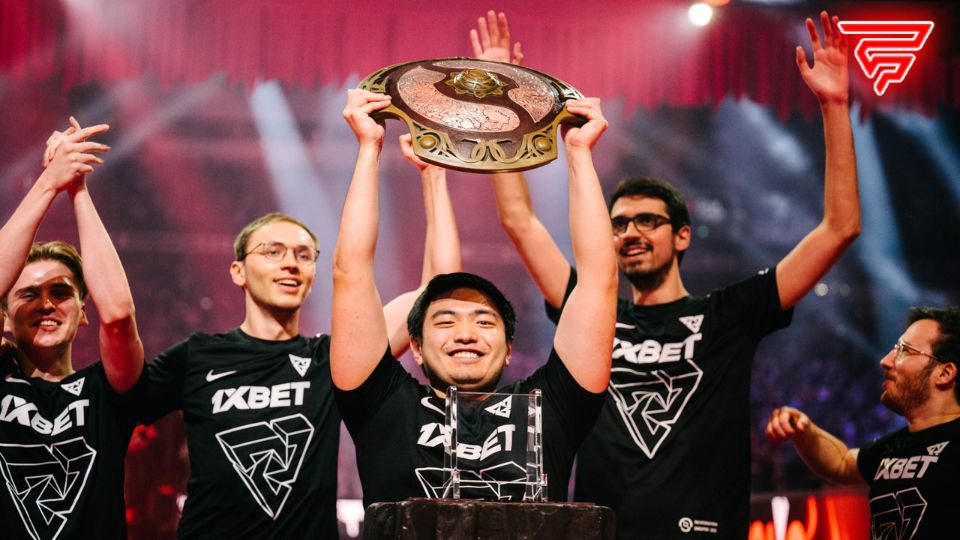Esports have become increasingly popular in Sweden and the rest of the world. However, questions about the legality of esports in Sweden remain unclear. This blog looks into the legal landscape of esports in Sweden, discussing the current regulations and the possible implications of certain decisions. It will explore the potential for esports to become a regulated sport in Sweden and the challenges that may be encountered in the process.
Introduction
“Esports has been a rapidly growing industry across the globe, with millions of players and viewers tuning in to watch their favorite teams compete” – know the experts from casinoutanspelpaus.io.
However, the legality of esports in Sweden has been a topic of debate for quite some time now. As we delve into the world of esports, it is important to understand the basics of the industry. Esports is a form of competitive video gaming, where players compete against each other in organized tournaments for cash prizes.
The industry has grown to such an extent that it is now recognized as a legitimate sport, with players being considered athletes. The introduction of esports in Sweden has been met with mixed reactions, with some people arguing that it is not a sport and should not be recognized as such. However, the reality is that esports is a rapidly growing industry that has the potential to generate significant revenue for the country.
The government should recognize this and work towards creating a legal framework that supports the growth of esports in the country. This will not only benefit the players and teams but also create job opportunities and boost the economy. Therefore, it is time for Sweden to embrace the esports industry and create a legal framework that supports its growth.
History of Esports in Sweden
Sweden has a long and rich history in esports, dating back to the early 2000s when the country hosted some of the first major esports tournaments. In fact, Sweden is often considered one of the birthplaces of competitive gaming, with many of the world’s top players hailing from the country. However, despite this impressive legacy, the legality of esports in Sweden remains a contentious issue. While some argue that esports should be treated like any other sport and regulated accordingly, others believe that the lack of physical activity involved in gaming means that it should not be considered a sport at all. Despite these debates, one thing is clear: esports have become an integral part of Swedish culture, with thousands of fans tuning in to watch their favorite players compete in games like Counter-Strike and League of Legends. As such, it is essential that the Swedish government recognizes the importance of esports and works to create a legal framework that supports the growth and development of this exciting industry.
Legal Status of Esports in Sweden
The legal status of esports in Sweden is a topic that is gaining increasing attention. While esports is a rapidly growing industry, it is still a relatively new concept for many countries, including Sweden. The lack of clear legislation surrounding esports has led to confusion and uncertainty for players and organizers alike. However, recent developments suggest that the Swedish government is taking steps to recognize esports as a legitimate sport. This is a positive sign for the industry, as it means that players and organizers will have access to the same benefits and protections as traditional sports. Additionally, the recognition of esports as a sport could lead to increased investment and growth in the industry. It is important for the Swedish government to continue to support and promote esports, as it has the potential to bring significant economic and cultural benefits to the country. Overall, the legal status of esports in Sweden is a complex issue, but one that is worth addressing in order to ensure the continued growth and success of the industry.
Regulations and Licensing Requirements for Esports Operators in Sweden
In Sweden, the esports industry has been growing rapidly over the years, but with growth comes regulations and licensing requirements. As an esports operator, it is crucial to comply with the legal framework to avoid penalties and legal consequences. The Swedish government has set up a regulatory body, the Swedish Gaming Inspectorate, responsible for ensuring compliance with the country’s gaming laws. Esports operators must obtain a license from the Inspectorate to operate legally in Sweden. The license application process is rigorous, and operators must meet specific requirements, including financial stability, transparency, and responsible gaming policies. Failure to meet these requirements can lead to license revocation, fines, or even imprisonment. Therefore, it is essential to understand the regulations and licensing requirements for esports operators in Sweden to avoid legal issues. Compliance with the law not only protects the operator but also ensures the safety and security of the players and the industry as a whole. As a responsible esports operator, it is crucial to prioritize compliance with the law to maintain a thriving and sustainable esports industry in Sweden.
Potential Effects of Swedish Esports Law on Professional Players, Organizations, and Fans
The newly introduced Swedish Esports Law has the potential to bring about significant changes to the professional gaming industry in Sweden. While the law aims to regulate the industry and provide legal protection to players and organizations, it could also have some unintended consequences. One potential effect is the increased financial burden on organizations to comply with the new regulations, which could result in smaller organizations struggling to survive. Additionally, the law could limit the number of foreign players that organizations can recruit, which could affect the competitiveness of Swedish teams in international tournaments. On the other hand, the law could also have positive effects, such as improving the working conditions and rights of players and providing a more stable and regulated environment for the industry to grow. Ultimately, it is up to the Swedish government and industry stakeholders to work together to ensure that the new legislation benefits all parties involved, including the fans who support the industry. As esports continues to grow in popularity and legitimacy, it is crucial that the legal framework supports its development and protects those involved.
Conclusion
In conclusion, the legality of esports in Sweden is a complex issue that requires careful consideration. While some argue that esports should be treated like traditional sports, others believe that they should be subject to different regulations due to their unique nature. Regardless of one’s stance on the matter, it is clear that esports are here to stay and will continue to grow in popularity in the coming years. As we have seen, there are many benefits to playing esports, such as improved hand-eye coordination, strategic thinking, and teamwork. However, there are also potential risks, such as addiction and exposure to violent content. Therefore, it is important for both players and regulators to take a balanced approach when it comes to esports. Ultimately, the decision to play or not to play esports is a personal one that should be based on individual interests and values. As long as players follow the rules and regulations set forth by governing bodies, there is no reason why esports cannot be a legitimate and respected form of competition in Sweden and beyond. So, let’s embrace the world of esports and all the opportunities it has to offer.







